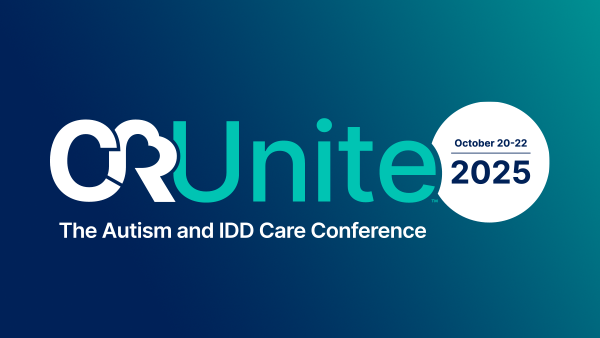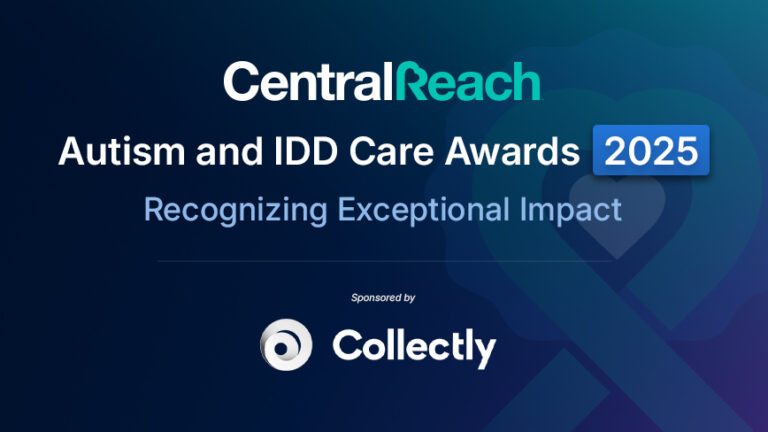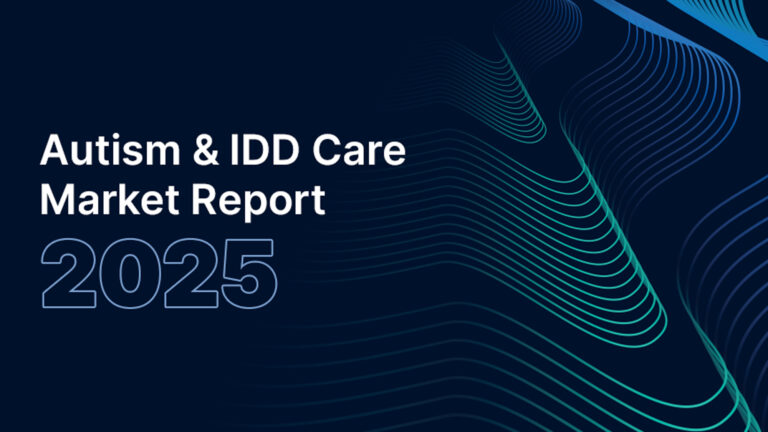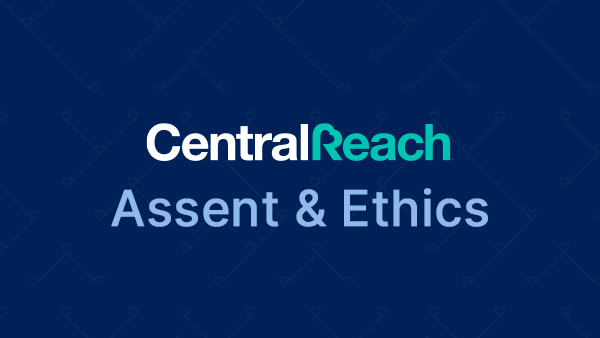The Applied Behavior Analysis (ABA) field has grown substantially in recent decades. The majority of ABA professionals work with vulnerable populations, including those with autism and other developmental disabilities. The safety of clients and their stakeholders is of utmost importance. To protect clients and ensure the integrity of the field, the Behavior Analyst Certification Board® (BACB®) establishes ethics codes for behavior analysts and technicians. As the ethical landscape of the field is continuously evolving, these codes are regularly updated to reflect the current standards. Read on to explore the current BACB® Ethics Codes in 2024.
Understanding BACB® Ethics
The BACB® ethics codes serve as a set of guidelines and standards necessary to govern the behavior of ABA professionals. They provide a foundation for protecting clients, stakeholders, certificants, and applicants.
The Ethics Code for Behavior Analysts
The Ethics Code for Behavior Analysts covers the ethical guidelines required of board certified behavior analysts® (BCBAs®), board certified assistant behavior analysts® (BCaBAs®), and applicants. Behavior analysts and applicants must follow this code regardless of their role, employment setting, or other factors.
The most recent update to the ethical code went into effect on January 1st, 2022. The code includes six sections, which cover 85 guidelines. Failure to familiarize oneself with the code is not an excuse for non-compliance. Therefore, certified behavior analysts and applicants are responsible for reviewing and understanding the code. Let’s dive in for a brief overview.
Section 1: Responsibility as a Professional
The first section of the Ethics Code for Behavior Analysts highlights the responsibilities as a professional. It covers the foundations for ethical behavior. Being truthful, taking accountability, practicing within one’s scope of competence, and being culturally responsive are just a few of the tenets this section encompasses.
Section 2: Responsibility in Practice
The second section covers behavior analysts’ responsibility in practice. This section dives deeper into ethical requirements, encompassing principles such as minimizing risk, collecting and using data, considering medical needs, and collaborating with colleagues and other professionals.
Section 3: Responsibility to Clients and Stakeholders
Section 3 covers behavior analysts’ ethical responsibilities for their clients and stakeholders. Some examples include acting in the best interest of their clients and doing no harm, maintaining high-quality documentation, and appropriately discontinuing and transitioning services.
Section 4: Responsibility to Supervisees and Trainees
Quality supervision and training is critical for the future of the ABA field. As such, the ethics code also guides behavior analysts’ behavior with supervisees and trainees. This section comprises requirements such as knowledge and compliance with supervisory requirements, maintaining supervision documentation, and taking on supervisees only within their individualized supervisory volume.
Section 5: Responsibility in Public Statements
This ethics code section covers components like compliance with intellectual property laws, maintaining confidentiality in public statements, and avoiding soliciting testimonials from current clients.
Section 6: Responsibility in Research
Lastly, while not all behavior analysts conduct research, the board provides clarity on the ethical responsibilities in behavior-analytic research for those who do. These ethical guidelines include obtaining approval from a formal research review committee, maintaining confidentiality, and obtaining informed consent.
The RBT® Ethics Code (2.0)
The RBT® Ethics Code (2.0) is the most recently updated version of the ethical code for registered behavior technicians® and applicants. As with the code for behavior analysts, RBTs® and applicants must thoroughly review and understand the code.
This code encompasses three sections with 29 ethical standards. Read on for a brief overview of this code.
Section 1: General Responsibilities
Section 1 covers the general responsibilities of behavior technicians and applicants, including conducting oneself professionally, providing services within one’s scope of practice and competency, and avoiding multiple relationships.
Section 2: Responsibilities in Providing Behavior-Technician Services
This section encompasses a behavior technician’s responsibilities in providing services. Some guidelines include doing no harm, following supervisors’ direction, and protecting client confidentiality.
Section 3: Responsibilities to the BACB and BACB-Required Supervisor
The final section encompasses an RBTs® responsibility to the BACB® and their supervisor. These include complying with documentation requirements, self-reporting guidelines, and honest communications with the BACB® and supervisors.
Updates and Changes in the Ethics Codes
In January 2022, the BACB® implemented new codes for both RBTs® and behavior analysts. These BACB® ethics codes are still in place as of 2024.
With the 2022 update, the Ethics Code for Behavior Analysts added the following standards:
- Timeliness
- Maintaining supervision documentation
- Incorporating and addressing diversity
- Protecting clients, stakeholders, supervisees, and trainees
- Social media channels and websites
With the 2022 update, the RBT® Ethics Code (2.0) added the following standards:
- RBTs® cannot be employers of their supervisor
- RBTs® work with their supervisor to ensure that they are culturally responsive and evaluate their biases
- RBTs® conduct themselves professionally and take action to improve performance following feedback
- RBTs® can only implement punishment or restrictive practices after their supervisor has verified competence and the procedures are documented in a behavior-change plan
- RBTs® direct questions or concerns to their supervisor
- RBTs® immediately inform their supervisor of notification from the BACB® of alleged violations and work together to respond to correspondence
- RBTs® regularly check the BACB® account to ensure their information is accurate. If a change in certification occurs (i.e., inaction, expired, suspended, or revoked), RBT® notify their supervisor within 24 hours and comply immediately with requirements.
Ethical Challenges
It is not uncommon to face ethical dilemmas while working in the ABA field. These challenges may be multifaceted and not necessarily black and white. Behavior analysts must approach ethical dilemmas cautiously to ensure compliance with the code and prioritize the well-being of clients, staff, and stakeholders.
Some common ethical challenges that can arise include:
Dual relationships–Sometimes boundaries become blurred, bordering into dual relationship territory. This is especially true for clinicians who work in client’s homes, as clinicians and caregivers often have a closer working relationship. When families welcome a therapist into their home for several hours each week, it can become difficult to maintain professional boundaries. However, it is vital for the integrity of the client’s care to avoid dual relationships and establish clear boundaries for all parties from the onset of care.
Practicing outside of one’s scope of competence–Most ABA professionals pursue this line of work to help improve others’ lives. Thus, it is only natural for behavior analysts to want to help everyone with everything. While ABA can used in all populations and to support a vast range of needs, we must recognize our areas of competence and scope of practice. Practicing outside of one’s scope of competence can result in harm or stalled progress for the learner.
Failing to consider medical needs–Behaviors are often multifaceted. It is not uncommon for learners to exhibit behaviors influenced by medical or biological factors. Therefore, behavior analysts must consider medical needs (including referring clients to medical professionals for evaluation) before addressing behaviors from a behavior-analytic standpoint.
Ethical Decision-Making
In the Ethics Code for Behavior Analysts, the BACB® provides a decision-making framework to support behavior analysts in problem-solving ethical concerns. This process includes the following steps.
- Clearly define the issue and consider potential risk of harm to relevant individuals.
- Identify all relevant individuals.
- Gather relevant supporting documentation and follow-up on second-hand information to confirm that there is an actual ethical concern.
- Consider your personal learning history and biases in the context of the relevant individuals.
- Identify the relevant core principles and Code standards.
- Consult available resources (e.g., research, decision-making models, trusted colleagues).
- Develop several possible actions to reduce or remove risk of harm, prioritizing the best interests of clients in accordance with the Code and applicable laws.
- Critically evaluate each possible action by considering its alignment with the “letter and spirit” of the Code, its potential impact on the client and stakeholders, the likelihood of it immediately resolving the ethical concern, as well as variables such as client preference, social acceptability, degree of restrictiveness, and likelihood of maintenance.
- Select the action that seems most likely to resolve the specific ethical concern and reduce the likelihood of similar issues arising in the future.
- Take the selected action in collaboration with relevant individuals affected by the issue and document specific actions taken, agreed-upon next steps, names of relevant individuals, and due dates.
- Evaluate the outcomes to ensure that the action successfully addressed the issue (Behavior Analyst Certification Board, p 5-6, 2020).
Reporting an Ethical Violation
If you or another certified professional has committed an ethical violation, you should take the following steps to alleviate the situation.
- Address the individual directly: Discuss the alleged violation with the individual. Allow them an opportunity to correct the issue, as long as doing so would not put anyone at risk of ongoing harm. It is appropriate to skip this step if the violation requires immediate reporting. For example, you witnessed abuse that must be reported to the authorities. If addressing the individual did not alleviate the concern, proceed to the next step.
- Confirm prerequisites for a report are met: To report an ethical violation, the following must be true:
- The BACB® must have jurisdiction over the individual
- There was a violation of a specific ethical requirement
- There is supporting documentation of the violation
- The violation occurred or you were made aware of it in the last six months.
- Report: If the prerequisites were met, report the violation to the BACB® with the supporting documentation. If the violation needs to be reported to other agencies (i.e., the police or your company), notify those agencies first, then submit a violation report to the board. Learn more about the considerations for reporting an alleged ethical violation here.
BACB® Code Enforcement
Committing an ethical violation can have several potential consequences depending on the specific violation and the board’s determination. The BACB® may issue one or more consequences following an ethics investigation, including:
- Mandatory professional development
- Mentorship
- Verification of competence
- Reading articles and submitting a paper regarding the relevant code violations
- Certification or eligibility invalidated
- Certification or eligibility revoked
- Certified or eligibility suspended
- Practice restriction
- Mandatory disciplinary supervision
For more information about code enforcement, review the Code-Enforcement Procedures.
Compliance and Ethical Behavior in Practice
As a relatively new and fluid field, behavior analysis constantly evolves. Maintaining competence and obtaining knowledge of the current best practices is critical. ABA professionals must attend ongoing continuing education and professional development to stay current with the ABA literature and recommendations. Maintaining knowledge of best practices is not only in the best interest of the clients and stakeholders but is also an ethical responsibility that must be upheld.
Ethics Wrap-Up
The BACB® Ethics Codes for Behavior Analysts and Registered Behavior Technicians® are essential guides for ensuring the ethical application of ABA. As these codes can evolve to reflect the profession’s changing landscape, it is important to stay up-to-date with the most current version. We encourage all behavior analysts, technicians, and those pursuing certification to regularly review the code to refresh their memory and review for updates.
Upholding these ethical standards is paramount for the safety and well-being of clients, as well as for maintaining the integrity of the field. By adhering to the principles outlined in the BACB® Ethics Codes, ABA professionals demonstrate their commitment to professionalism, competence, and ethical conduct, ultimately contributing to the positive outcomes of those they serve.
References
Behavior Analyst Certification Board. (2020). Ethics code for behavior analysts.
https://bacb.com/wp-content/ethics-code-for-behavior-analysts/
Behavior Analyst Certification Board. (2021). RBT ethics code (2.0). https://www.bacb.com/wp-content/rbt-ethics-code
Posted in All, Applied Behavior Analysis & Training
You may also like...
Related information and stories
Enhancing ABA Staff Training – Streamlining Compliance through Assigned Programs
In the field of Applied Behavior Analysis (ABA), staff training plays a pivotal role in ensuring the success of behavioral interventions and the positive development of individuals with diverse needs.…
Continue ReadingBACB 8-Hour Supervision Training
The field of applied behavior analysis (ABA) has rapidly grown over the last several years, with thousands of new Registered Behavior Technicians® (RBTs®) and Board Certified Behavior Analysts® (BCBAs®) certified…
Continue ReadingThese 5 reporting mistakes may be harming your ABA practice
In order for an ABA organization to grow, it must have clear insight into critical reports, trends, and patterns. According to a recent study, organizations that implement a unified data…
Continue Reading






